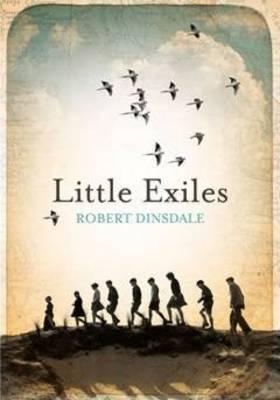Little Exiles
Convict transportation to Australia had ceased by the 1860s, but for the next century Britain sanctioned the exportation of another kind of human cargo across the seas: unwanted or disadvantaged children, ostensibly to give them better opportunities or turn them into farmers for the Empire. Only recently have the experiences of these child exiles and their families become more widely known and public apologies for the scheme issued by the nations concerned.
This novel takes up the chain and tells the story of Jon Heather from Leeds who, aged nine in 1949, is separated from his mother and sisters by The Children’s Crusade and sent to a remote desert mission in Western Australia, run by the sinister “men in black.” Most of the children are told that their parents are dead, even when this was often not the case.
This is a disturbing tale that is not just about control and child abuse but also about loss of identity and a search for belonging, and the main drive of the plot is Jon’s determination to find his way back home to England.
The illumination of the victims’ side of this story is graphic and uncompromising, including a pivotal sub-plot involving the similar abduction of Aboriginal children, but the narrative lacks clarity in places, and despite all that he endures, Jon remains difficult to grasp, or even like, with his peculiar combination of outrage and naiveté. The secondary characters, his friends Peter and George and girlfriend Megan, all seem more real. Greater exposition on what drove Judah Reed, the chief “child-snatcher,” could have broadened the novel’s power. Australian readers might spot a few anachronisms relating to their country during this era, but otherwise this is a notable addition to the literature on the child migrant experience.










